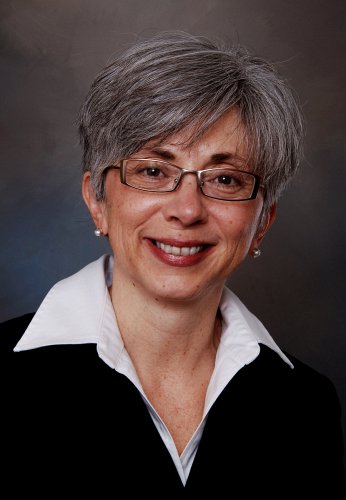As the healthcare industry shifts away from the fee-for-service model and into a value-based one, hospital and health system CFOs are faced with a complicated task — making the best financial decisions for their organizations with one foot in the old model and one in the new.
Ascension Health Senior Vice President and CFO Rhonda Anderson is one finance leader who is stepping up to the challenge. Ms. Anderson assumed her role at St. Louis-based Ascension Health in October 2014, but she has a much longer history in the healthcare industry. She previously served as president of the business development division and CFO of Columbia St. Mary's in Milwaukee, a health ministry of Ascension Health. Prior to that, she spent 20 years at Saint Agnes HealthCare in Baltimore where she served in a number of roles, including senior vice president and CFO.
As the finance chief for the nation's largest Catholic and nonprofit healthcare system, Ms. Anderson understands the myriad of challenges healthcare CFOs are facing and what it takes to overcome them.
Ms. Anderson took the time to discuss some of the biggest challenges Ascension Health is facing today, the evolution of the CFO role and the issues that keep her motivated to come to work each day. 
Question: What skills are essential for a health system CFO in today's healthcare climate beyond traditional financial and business acumen?
Rhonda Anderson: As the healthcare industry moves to a fee-for-value payment system, chief financial officers have to be open to the disruptive environment and look at the ongoing changes as an opportunity. To respond to this landscape, chief financial officers should be comfortable and flexible with seeking strategic partnerships and building relationships with other providers, health systems and payers.
Q: What is the greatest challenge facing hospital and health system CFOs today?
RA: The analogy that I like to use is that the industry changes are so significant that it is like healthcare chief financial officers have a foot in two boats at the same time. This is a major balancing act of the fee-for-service world vs. the fee-for-value world. As chief financial officers, it is important to manage our existing operations, but also have the vision for the future.
At Ascension, we have made it a priority to leverage our talent across all markets and have created centers of expertise to serve as catalysts for unique perspectives and different thinking in each of our markets. Our focus is to be comfortable working in the gray zone, as nothing is concrete today.
Q. As the healthcare industry shifts to value-based systems of pay, what is the biggest challenge you are facing? What strategies are you employing to meet this challenge?
RA: Our national health system is aligning our assets and leveraging our expertise in the finance disciplines of managed care, payer contracting and accounting to be more strategic in our journey to value-based care. Our move to one integrated health system enables us to move from provider-centered to person-centered; from transactional and episodic encounters with patients to care managed over time by a care team; from a focus on sick care to well-being; from limited access for those we serve to convenience 24 hours a day, seven days a week; and from measuring the volume of patients we see to measuring health outcomes and the value we deliver.
Q: In the face of so many challenges from seemingly all corners of the industry, what keeps you excited and motivated to come to work each day?
RA: At Ascension, we are called to serve all persons with special attention to those who are struggling, and to advocate for a compassionate and just society. This mission is why we get up every day to support our national health system. An example of our commitment is our advocacy for Medicaid expansion, which helps us to deliver on our mission to provide compassionate, personalized care to all people.
Medicaid expansion is greatly benefiting individuals who live in expansion states, resulting in significant increases in health coverage for those who need it most. This is our priority: to achieve equity in healthcare for every patient and family we care for on a daily basis.

